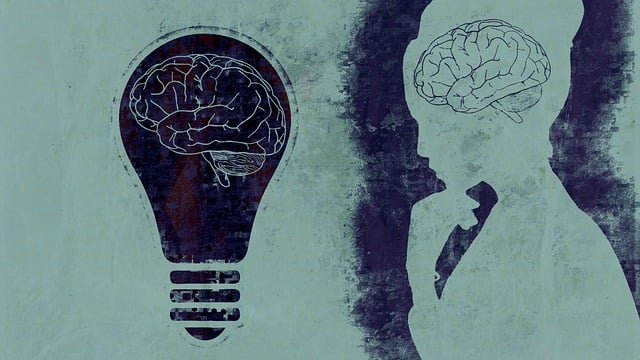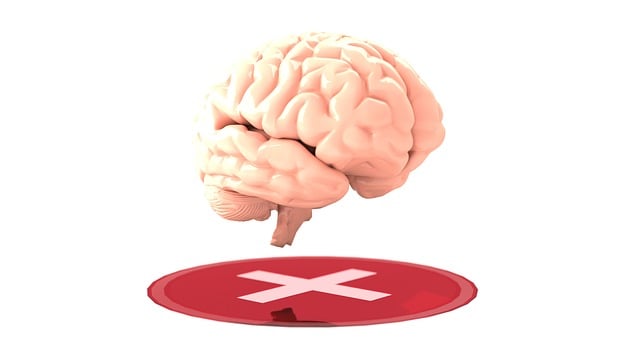Public awareness campaigns play a pivotal role in combating stigma surrounding mental health conditions like bipolar disorder, with Westminster Bipolar Disorder Therapy (WBDT) as a successful example. These campaigns educate the public about symptoms, challenges, and treatment options, fostering understanding and support. WBDT's multi-faceted approach includes social media storytelling, community events, crisis intervention guidance, self-care routines, and trauma support services. Engaging local leaders and diverse communities through workshops, support groups, and online sessions enhances impact, reducing stigma and improving access to tailored care. Evaluating campaigns' effectiveness involves measuring shifts in public perception, help-seeking behaviors, and long-term psychological well-being.
Public awareness campaigns play a pivotal role in challenging mental health stigmas, with significant implications for improving access to support. This article explores strategies for effective initiatives, drawing from a case study of Westminster Bipolar Disorder Therapy. We delve into key components, community engagement tactics, and evaluation metrics that have proven successful in fostering understanding and reducing stigma. By examining these elements, we aim to empower mental health advocates to create impactful campaigns.
- Understanding Public Awareness: Why It Matters for Mental Health Stigma Reduction
- Westminster Bipolar Disorder Therapy: A Case Study for Effective Campaign Strategies
- Key Components of Successful Public Education Initiatives
- Engaging the Community: Methods to Boost Participation and Impact
- Measuring Success: Evaluation Metrics for Public Awareness Campaigns on Mental Health
Understanding Public Awareness: Why It Matters for Mental Health Stigma Reduction

Public awareness campaigns play a pivotal role in shaping societal perceptions and behaviors, especially when addressing sensitive topics like mental health stigma. By increasing understanding and empathy, these campaigns foster an environment conducive to support and acceptance. This is particularly crucial for conditions such as bipolar disorder, where misconceptions often lead to stigmatization.
Mental health awareness initiatives, including those targeting bipolar disorder, should focus on educating the public about the realities of the condition—its symptoms, challenges, and the potential for effective management through therapy and coping skills development. Encouraging open conversations about emotional healing processes and resilience building can help dispel myths and promote compassion. For instance, recognizing that Westminster Bipolar Disorder Therapy offers specialized support tailored to individuals’ unique needs is a significant step towards reducing stigma and ensuring those affected receive the necessary care.
Westminster Bipolar Disorder Therapy: A Case Study for Effective Campaign Strategies

The Westminster Bipolar Disorder Therapy (WBDT) campaign stands out as a successful example of raising public awareness and providing support for individuals dealing with bipolar disorder. This initiative focused on educating the public about the nature of bipolar, challenging stigma, and offering practical resources. By employing a multi-faceted strategy, WBDT effectively reached diverse audiences through various media channels. They utilized social media platforms to share personal stories, increase engagement, and provide easy access to information. Additionally, they organized community events and workshops to foster open conversations about mental health, particularly in at-risk populations.
The campaign’s success can be attributed to its holistic approach that went beyond simple awareness. WBDT incorporated trauma support services, emphasizing the importance of resilience building and social skills training as integral components of bipolar disorder management. This inclusive strategy not only empowered individuals with knowledge but also offered practical tools for coping and connecting within their communities. The case study of WBDT illustrates how tailored public awareness campaigns can significantly impact mental health support systems, ultimately leading to better outcomes for those struggling with bipolar disorder.
Key Components of Successful Public Education Initiatives

Successful public education initiatives about mental health conditions like bipolar disorder require a multi-faceted approach. Firstly, Westminster Bipolar Disorder Therapy should be presented in clear, accessible language that resonates with diverse audiences. This involves using relatable examples and avoiding jargon to ensure information is comprehensible. Secondly, integrating Crisis Intervention Guidance into these campaigns is vital for equipping individuals with immediate coping strategies during episodes.
Beyond raising awareness, these initiatives must foster a sense of community and encourage open dialogue. Encouraging people to share their Self-Care Routine Development for Better Mental Health experiences can normalize conversations around mental health challenges. Engaging Healthcare Provider Cultural Competency Training can also ensure that support systems are equipped to handle diverse populations effectively, enhancing the reach and impact of public education campaigns.
Engaging the Community: Methods to Boost Participation and Impact

Engaging the community is a powerful strategy to enhance the impact of public awareness campaigns about mental health conditions like bipolar disorder. In cities such as Westminster, where diverse populations reside, tailored approaches are necessary to foster participation and ensure the message resonates with all communities. One effective method is to involve local community leaders, influencers, and organizations who can act as advocates and ambassadors for the cause. These individuals can help bridge the gap between service providers and the public by sharing personal stories, dispelling myths, and encouraging open conversations about mental health.
Additionally, designing engaging activities that promote coping skills development, emotional regulation, and conflict resolution techniques can attract a wider audience. Workshops, support groups, and interactive online sessions that teach practical tools for managing bipolar disorder symptoms empower individuals to take charge of their well-being. By combining these community-driven initiatives with targeted messaging, public awareness campaigns can create a ripple effect, increasing understanding, reducing stigma, and ultimately improving access to Westminster Bipolar Disorder Therapy services.
Measuring Success: Evaluation Metrics for Public Awareness Campaigns on Mental Health

Evaluating the success of public awareness campaigns on mental health is paramount to understanding their impact and effectiveness in fostering societal change. Metrics for assessing these initiatives should go beyond simple reach or participation rates, delving into more nuanced indicators such as shifts in public perception, increased help-seeking behaviors, and improved knowledge about specific disorders like bipolar disorder from Westminster.
Key evaluation metrics could include tracking the adoption of self-care practices and compassion cultivation techniques following campaign exposure, as these behavioral changes can be powerful indicators of mental wellness. Furthermore, measuring burnout prevention efforts among participants can offer valuable insights into the long-term sustainability of positive psychological shifts sparked by awareness campaigns.
Public awareness campaigns play a pivotal role in reducing mental health stigma, as evidenced by the success of initiatives like Westminster Bipolar Disorder Therapy. By understanding key components such as effective communication strategies and community engagement, we can create impactful programs that educate and foster acceptance. Measuring campaign success through evaluation metrics ensures continuous improvement, ultimately leading to better mental health outcomes for all.














